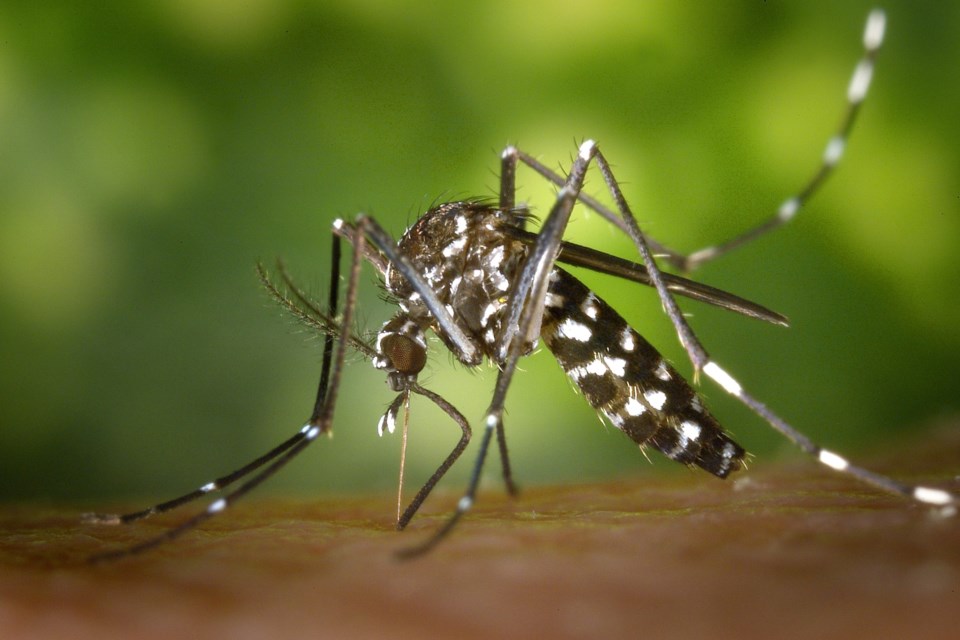The health unit has reported a positive case of West Nile Virus ... in a mosquito.
Public Health Sudbury and District (PHSD) said it routinely traps mosquitoes across the region to determine whether there are any tiny bugs infected with the disease.
"Public Health Sudbury & Districts has received confirmation that a mosquito on Manitoulin Island has tested positive for West Nile virus (WNv). This mosquito was detected through routine surveillance conducted by the health unit," said a news release.
It has been five years, 2018, since the last positive mosquitoes were detected within the Sudbury health jurisdiction, said the release.
“In our service area this year, there have been no confirmed cases of birds, animals or people being infected with the virus. However, this positive mosquito reminds us that although the overall risk of a person becoming infected is low, the virus is still present,” said Burgess Hawkins, a manager in Public Health’s Health Protection division.
“Therefore, taking precautions to avoid becoming infected with West Nile virus is important,” added Hawkins.
West Nile virus is spread through the bite of an infected mosquito. Mosquitoes get the virus by feeding on infected birds. Symptoms can range from mild to severe. Most people infected with the virus have no symptoms while others may experience mild symptoms including fever, headache, body aches, mild rash, and swollen lymph glands. In very rare cases the infection can affect the central nervous system and cause serious symptoms, said the health unit.
Late summer is typically the time of greatest risk for contracting West Nile virus.
Mosquitoes can carry higher levels of the virus at this time, and this is when people might not be as careful about protecting themselves from mosquito bites. Here are some simple measures you can take to continue to protect yourself and your family, said the health unit statement.
In a previous statement issued in June, PHSD outlined a warning about mosquito bites and advised residents to remove areas of standing water around their homes and camps.
For more information on West Nile virus, visit the website at phsd.ca or call Public Health Sudbury & Districts at 705-522-9200.
